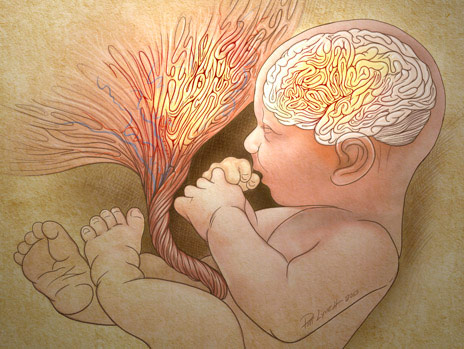Hospital-diagnosed maternal infections linked to increased autism risk
Hospital-diagnosed maternal bacterial infections during pregnancy were associated with an increased risk of autism spectrum disorders in children, according to a Kaiser Permanente study published Dec. 23 in the Journal of Autism and Developmental Disorders.
The research contributes new evidence to a body of scientific literature on the role of infection in autism risk and points to areas for further examination.
The study included 407 children with autism and 2,075 matched children who did not have autism. The study included infants born between January 1995 and June 1999 who remained members of the Kaiser Permanente health plan for at least two years following birth.
“Though infections in pregnant women are fairly common, in this study most were not associated with an increased risk of autism,” said Lisa A. Croen, PhD, research scientist with the Kaiser Permanente Division of Research and senior author of the study. “Only bacterial infections diagnosed in the hospital were associated with an increased risk.”
“Infections diagnosed in a hospital setting were more common among mothers of children who developed an ASD compared with mothers of children who did not develop an ASD,” Croen further explained.
Women with bacterial infections diagnosed during a hospitalization (including of the genitals, urinary tract and amniotic fluid) had a 58 percent greater risk of having a child with an ASD. While not very common in any of the mothers studied (1.5 percent of mothers of a child with ASD vs. 0.5 percent of mothers of a child without ASD), infections diagnosed during a hospitalization in the second trimester were associated with children having more than a three-fold increased risk of developing ASD.
 “Infections diagnosed in an inpatient setting may represent more severe infections, and these were associated with increased risk of ASD,” said Ousseny Zerbo, PhD, research fellow with the Kaiser Permanente Division of Research and the study’s lead author.
“Infections diagnosed in an inpatient setting may represent more severe infections, and these were associated with increased risk of ASD,” said Ousseny Zerbo, PhD, research fellow with the Kaiser Permanente Division of Research and the study’s lead author.
While the mechanism for how maternal infections may influence autism risk has not been firmly established, Zerbo said animal tests have shown that immune-system responses to infections during pregnancy may influence the neurological development of the fetus.
“Our findings indicate that although most infections during pregnancy were not associated with autism in the child, there appears to be some increased risk for autism,” Zerbo said. “It would be prudent for pregnant women to contact their doctor if they suspect an infection.”
###
Kaiser Permanente can conduct transformational health research such as this study in part because it has the largest private patient-centered electronic health system in the world. The organization’s electronic health record system, Kaiser Permanente HealthConnect®, securely connects 9.1 million patients to 16,000 physicians in almost 600 medical offices and 38 hospitals. It also connects Kaiser Permanente’s research scientists to one of the most extensive collections of longitudinal medical data available, facilitating studies and important medical discoveries that shape the future of health and care delivery for patients and the medical community.
In addition to Croen and Zerbo, co-authors of the study were Yinge Qian, MS, and Cathleen Yoshida, MA, Kaiser Permanente Division of Research; Judith K. Grether, PhD, formerly of the California Department of Public Health; and Judith Van de Water, PhD, Department of Rheumatology, University of California, Davis.
The study was funded by the Centers for Disease Control and Prevention, the Kaiser Foundation Research Institute and Autism Speaks.
About the Kaiser Permanente Division of Research
The Kaiser Permanente Division of Research conducts, publishes and disseminates epidemiologic and health services research to improve the health and medical care of Kaiser Permanente members and society at large. It seeks to understand the determinants of illness and well-being, and to improve the quality and cost-effectiveness of health care. Currently, DOR’s 550-plus staff is working on more than 250 epidemiological and health services research projects.
About Kaiser Permanente
Kaiser Permanente is committed to helping shape the future of health care. We are recognized as one of America’s leading health care providers and not-for-profit health plans. Founded in 1945, our mission is to provide high-quality, affordable health care services and to improve the health of our members and the communities we serve. We currently serve 9.1 million members in eight states and the District of Columbia. Care for members and patients is focused on their total health and guided by their personal physicians, specialists and team of caregivers. Our expert and caring medical teams are empowered and supported by industry-leading technology advances and tools for health promotion, disease prevention, state-of-the-art care delivery and world-class chronic disease management. Kaiser Permanente is dedicated to care innovations, clinical research, health education and the support of community health.